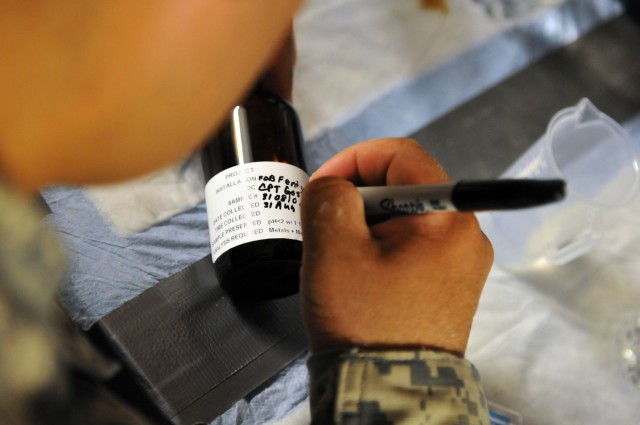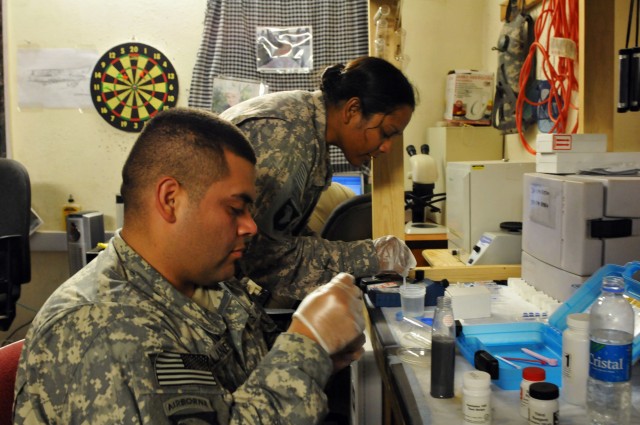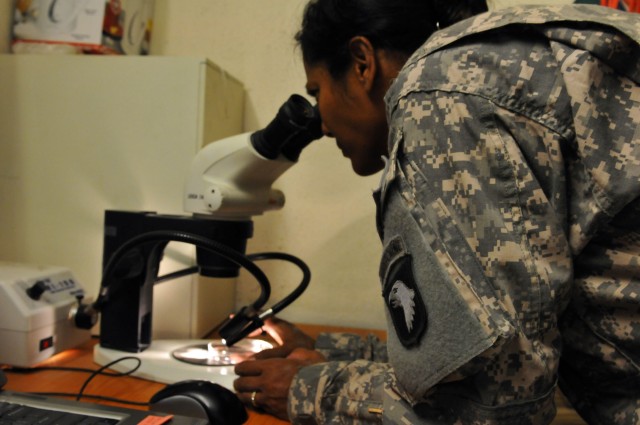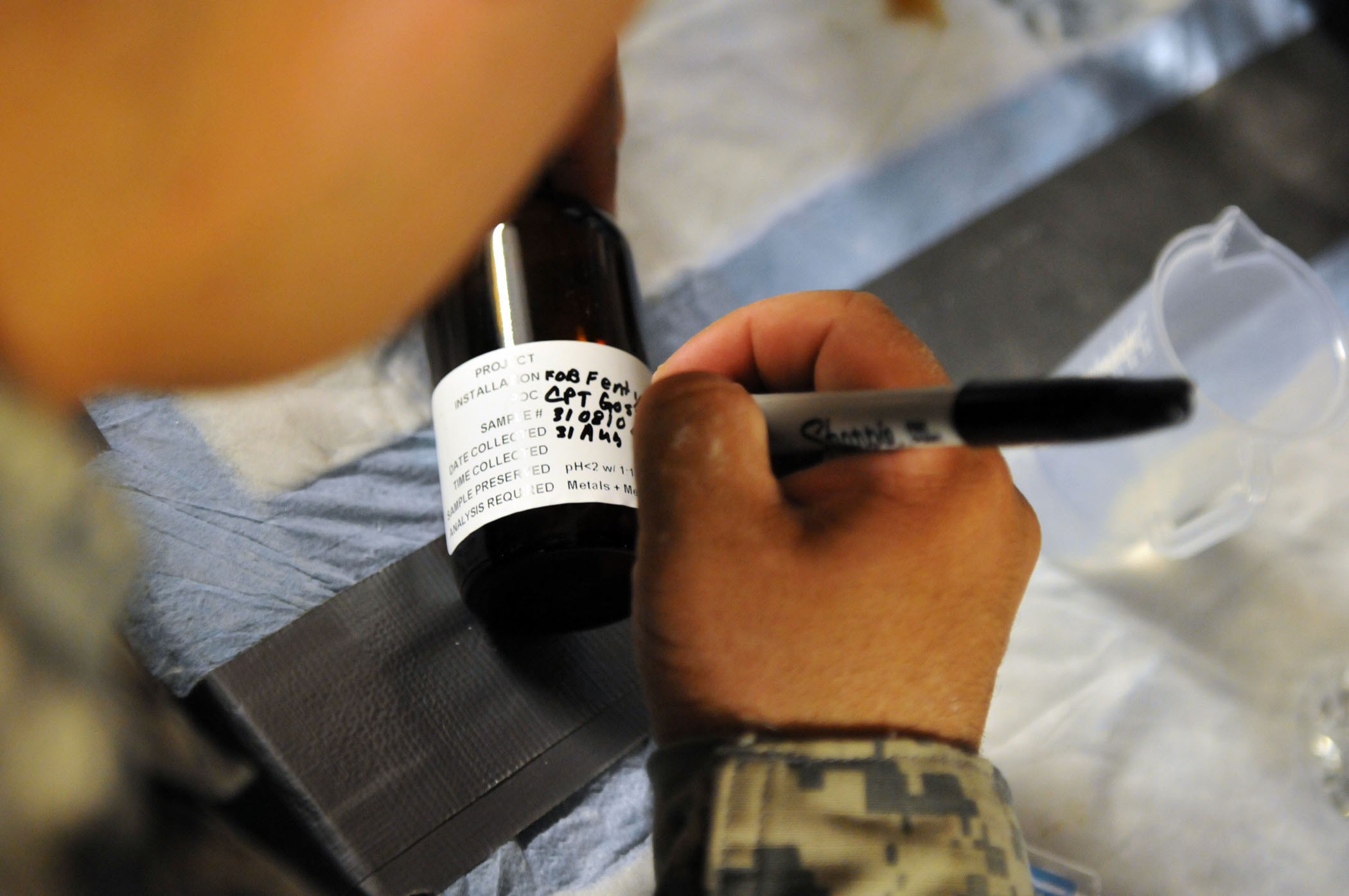NANGARHAR PROVINCE, Afghanistan - "Mosquitoes, ants, and wasps, oh my!"
The unforgiving terrain of the Nangarhar, Nuristan, Konar and Laghman provinces in eastern Afghanistan hosts hoards of insects and wildlife that create quite a hairy situation when it comes to co-habitating with troops; however, the Soldiers of the preventive medicine section of Charlie Company, 426th Brigade Support Battalion, Task Force Bastogne, see "combat" with these creatures on a daily basis.
What is the worst vector problem pestering Soldiers in a deployed environment'
"Flies! We have tons of flies and mosquitoes ... and mosquitoes are so much worse because it's harder to see them," said Capt. Susan Gosine of Fort Campbell, Ky., officer in charge of preventive medicine at Forward Operating Base Fenty in Jalalabad.
Mosquitoes and sand flies present a particular challenge because they can be carriers of vector-borne diseases such as Malaria. Soldiers deployed overseas are directed to take medication to prevent them from contracting the disease, though many Soldiers forget to take their pills. There were 29 cases of Malaria reported in 2009, mostly due to Soldiers forgetting to take their prescribed antibiotics.
"I specifically want to emphasize Malaria awareness," said Lt. Col. Joseph Llanos of Saginaw, Mich., a preventive medicine doctor for the 101st Airborne Division based out of Bagram Airfield. The highest risk for servicemembers is during the months of August and September.
Although vector control accounts for a large portion of the issues that PM handles, it is not the only concern of Gosine. She is, overall, responsible for the environmental safety of the FOB's residents, including living conditions, food preparation and water.
"The overall mission of preventive medicine is to prevent disease and non-battle injuries while deployed," said Gosine, who has a team of Soldiers and techs working with her at FOB Fenty.
PM is extremely important to troops in a field situation. If war fighters are not kept fit to fight, then their ability to accomplish the mission is greatly degraded. That is why Gosine and her team regularly visit outlying combat outposts and forward operating bases in the TF Bastogne area of operations.
"Well, if you consider past wars, preventive medicine is very important because you can lose troops to something as simple as diarrhea," said Gosine.
Even the common cold can be a combat degrader, but signs in the dining facility and the latrines remind Soldiers to practice good personal hygiene techniques.
"Our goal is to preserve the force, because once you get sick, it is a showstopper," said Llanos. "But if you prevent it, Soldiers will be overall healthier."
One thing Soldiers can do to prevent illness is wash their hands regularly. "I can't say it enough," warns Gosine.
As for those pesky insects, PM will continue their mission to keep Soldiers and civilians alike safe from the environment and anything else non-combat related that might cause them harm.






Social Sharing